Why Businesses Need Blockchain Development
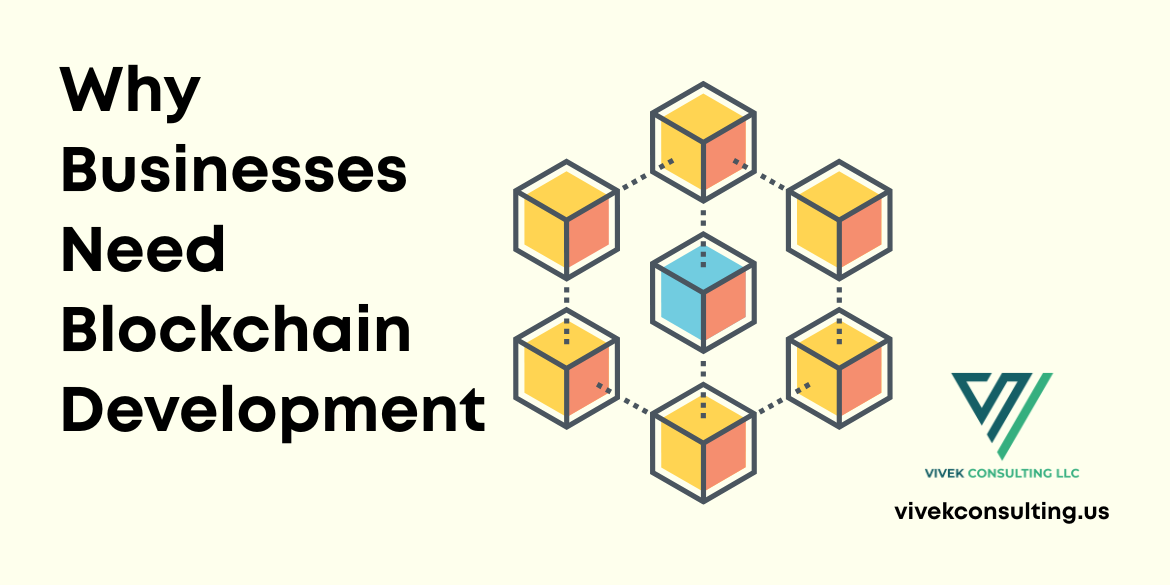
15 May 2025
What Is Blockchain and Why It
Matters for Businesses
In a digital world driven by
data, trust, and transparency, blockchain has emerged as a pivotal force. Fundamentally,
blockchain is a distributed, decentralized ledger that keeps track of
transactions across several computers.
This technology, once closely
tied to cryptocurrencies, now fuels innovations across industries. Its ability
to secure data, eliminate intermediaries, and automate processes makes it a
game-changer for modern businesses seeking both agility and reliability.
The Increasing Demand for
Cost-Effectiveness and Security in Contemporary Business
The modern enterprise faces
relentless pressure to do more with less—secure data, streamline operations,
and reduce costs without compromising on performance. Data breaches are not
just technical issues; they’re existential threats. Simultaneously, bloated
operational costs eat into profits. In this climate, blockchain answers the
call, offering a resilient infrastructure that safeguards assets while trimming
inefficiencies.
Understanding the Basics
What Is Blockchain Development
Designing, implementing, and
maintaining blockchain-based applications is known as blockchain development. This
includes creating smart contracts, building decentralized applications (dApps),
and integrating blockchain frameworks into existing systems. Incorporating
trust into each transaction is more than just coding.
How Blockchain Differs from
Traditional Databases
Unlike traditional databases that
rely on central authority, blockchain operates on a peer-to-peer network.
Traditional systems are editable and prone to manipulation. In contrast,
blockchain entries are time-stamped, immutable, and validated through consensus,
creating an auditable trail of data that is virtually incorruptible.
Types of Blockchains: Public,
Private, and Consortium
- Public blockchains like Ethereum are open to
everyone and maintained by distributed nodes.
- Private blockchains are controlled by a
single organization, ensuring privacy and speed.
- Consortium blockchains combine the best of
both worlds, governed by a group of organizations for shared benefit.
Each type serves different
business needs—transparency, control, or collaboration.
The Security Advantage
How Blockchain Secures
Business Transactions
Each blockchain transaction is
connected to the one before it and is encrypted. This chaining mechanism, along
with decentralized consensus, eliminates the risks of tampering and
falsification. It’s a self-policing system that flags and blocks
inconsistencies in real time.
Decentralization: The Key to
Tamper-Proof Records
Decentralization ensures no
single point of failure. If one node is compromised, the rest remain
unaffected. This design removes reliance on third-party trust and strengthens
data integrity across the network.
Smart Contracts and Automated
Security Protocols
Self-executing agreements encoded
into the blockchain are known as smart contracts. They trigger actions when
predefined conditions are met—no manual oversight required. This automation
reduces human error, enhances speed, and adds a robust layer of security to
digital interactions.
Immutability: Why Data
Integrity Matters
Data cannot be changed once it
has been written to a blockchain. This immutability is critical in sectors like
finance and healthcare, where tamper-proof records protect against fraud and
ensure regulatory compliance.
Reducing Fraud and Cyber
Threats with Blockchain
With every transaction visible
and verifiable across the network, fraudulent activities become easier to
detect and prevent. The cryptographic structure makes blockchain highly
resistant to hacks and data breaches.
Cutting Costs with Blockchain
Eliminating Middlemen in
Business Processes
Blockchain removes the need for
intermediaries—banks, brokers, notaries—by enabling peer-to-peer transactions.
This not only reduces costs but also accelerates processes that once took days.
Streamlining Supply Chains and
Logistics
Real-time tracking of goods,
automated documentation, and traceability make blockchain a perfect fit for
supply chains. It reduces delays, enhances transparency, and prevents costly
errors.
Reducing Operational Overhead
Through Automation
With smart contracts handling
routine tasks and verifications, businesses can reduce their dependence on
manual processes, lowering administrative costs and minimizing inefficiencies.
Lowering Compliance and Audit
Costs
Blockchain's transparent nature
simplifies audits and compliance. Immutable records are instantaneously
accessible to regulators and auditors, saving them time and money compared to
traditional checks.
Blockchain for Faster and
Cheaper Cross-Border Payments
Cross-border transactions,
traditionally slow and costly, are transformed by blockchain. Settlements that
used to take days can now occur in minutes, with significantly lower fees.
Industry Use Cases
How Finance Firms Use
Blockchain to Enhance Security
Banks and fintech companies use
blockchain to secure transactions, streamline KYC processes, and prevent fraud.
Moreover, decentralized finance (DeFi) is pushing the boundaries.
Retail and E-commerce:
Blockchain for Smarter Inventory and Payments
Blockchain makes it possible to
trace payments transparently and manage inventory in real time. It also
enhances customer trust through product authenticity verification.
Healthcare: Securing Patient
Records and Cutting Admin Costs
Patient data stored on blockchain
ensures privacy, interoperability, and real-time access across
institutions—reducing duplication and administrative overhead.
Real Estate: Transparent
Transactions and Lower Fees
Smart contracts enable seamless
property transfers, cutting down on paperwork, broker fees, and delays.
Blockchain ensures clear ownership records, minimizing disputes.
Manufacturing: Blockchain for
Cost-Effective Quality Control
Manufacturers leverage blockchain
for product traceability, defect tracking, and supplier validation—ensuring
quality at every step while reducing waste.
Implementation Strategies
How to Include Blockchain
Technology in Your Current Systems
Successful integration starts
with identifying use cases that benefit from decentralization and transparency.
APIs and blockchain-as-a-service (BaaS) platforms can help bridge the gap
between legacy systems and new decentralized networks.
Which Blockchain Platform Is
Best for Your Company?
The choice between Ethereum,
Hyperledger, Solana, or a custom-built chain depends on factors like
scalability, security, governance, and cost. Select based on your business’s
specific needs.
Common Pitfalls to Avoid in
Blockchain Development
Avoid over-engineering,
neglecting compliance, or implementing blockchain where it’s unnecessary. Lack
of user education and poor UX design can also doom a project before it begins.
Cost of Blockchain Development
vs Long-Term ROI
Initial development can be
costly, but long-term savings in fraud prevention, automation, and operational
efficiency often result in a strong ROI. To enjoy these advantages, careful
preparation is necessary.
Future-Proofing Your Business
How Blockchain Prepares
Businesses for the Next Tech Wave
From Web3 to the metaverse,
blockchain is the foundation. Embracing it now ensures readiness for the next
evolution in digital engagement, data ownership, and monetization.
Trends in Blockchain
Development Every Business Should Watch
Keep an eye on developments like
Layer-2 scaling solutions, zero-knowledge proofs, enterprise DeFi, and
cross-chain interoperability. These innovations are reshaping industries.
Why Blockchain Is No Longer
Just a Tech Buzzword
Once a fringe idea, blockchain is
now being embedded in enterprise architecture. Real-world applications and
billion-dollar ecosystems prove it’s more than hype—it’s the future.
Conclusion
The Bottom Line: Secure More,
Spend Less with Blockchain
Blockchain development is a
calculated move rather than merely a technological advancement. It empowers
businesses to safeguard assets, increase efficiency, and gain competitive
advantage.
Taking the First Step Toward
Blockchain Development in Your Business
Start by identifying where trust,
transparency, and automation are needed most. Partner with the right
developers, pilot a use case, and begin your journey toward a smarter, leaner
business.
Recent Articles
-
 Want more local traffic? These Local SEO Tips to Rank Higher on Google will get you noticed
Want more local traffic? These Local SEO Tips to Rank Higher on Google will get you noticed
-
 What's the Difference Between on-page and off-page SEO?
What's the Difference Between on-page and off-page SEO?
-
 What's the Real Difference Between Organic and Paid Digital Marketing?
What's the Real Difference Between Organic and Paid Digital Marketing?
-
 Boost SEO with a Mobile Friendly Website Today
Boost SEO with a Mobile Friendly Website Today
-
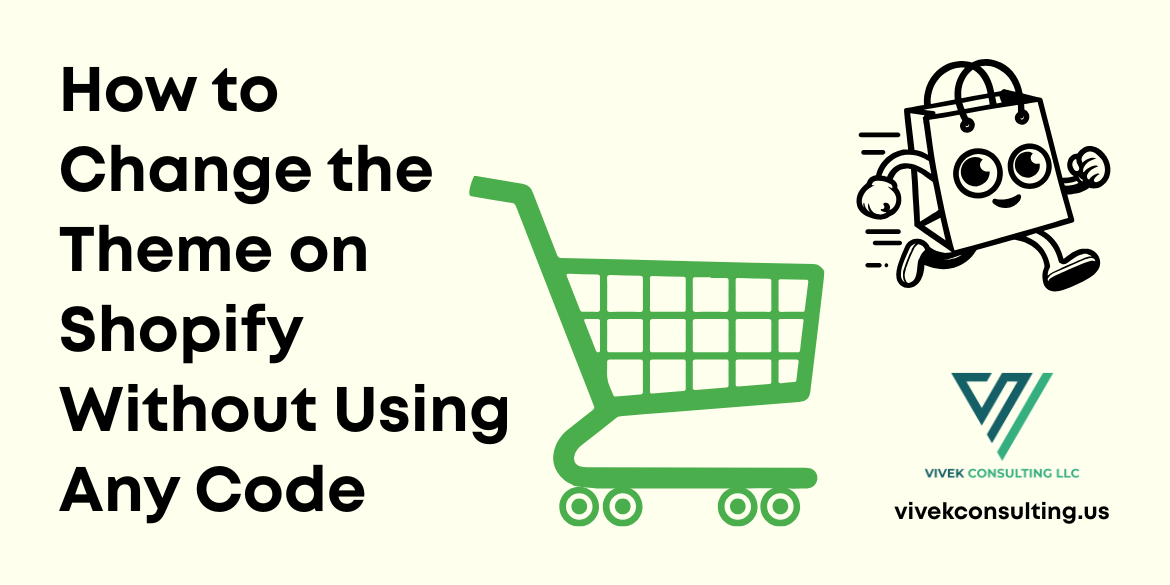 How to Change the Theme on Shopify Without Using Any Code
How to Change the Theme on Shopify Without Using Any Code
-
 Why Businesses Need Blockchain Development
Why Businesses Need Blockchain Development
-
 SEO Strategy: How to Create an Effective Plan
SEO Strategy: How to Create an Effective Plan
-
 2025 Digital Marketing Trends and Predictions
2025 Digital Marketing Trends and Predictions
-
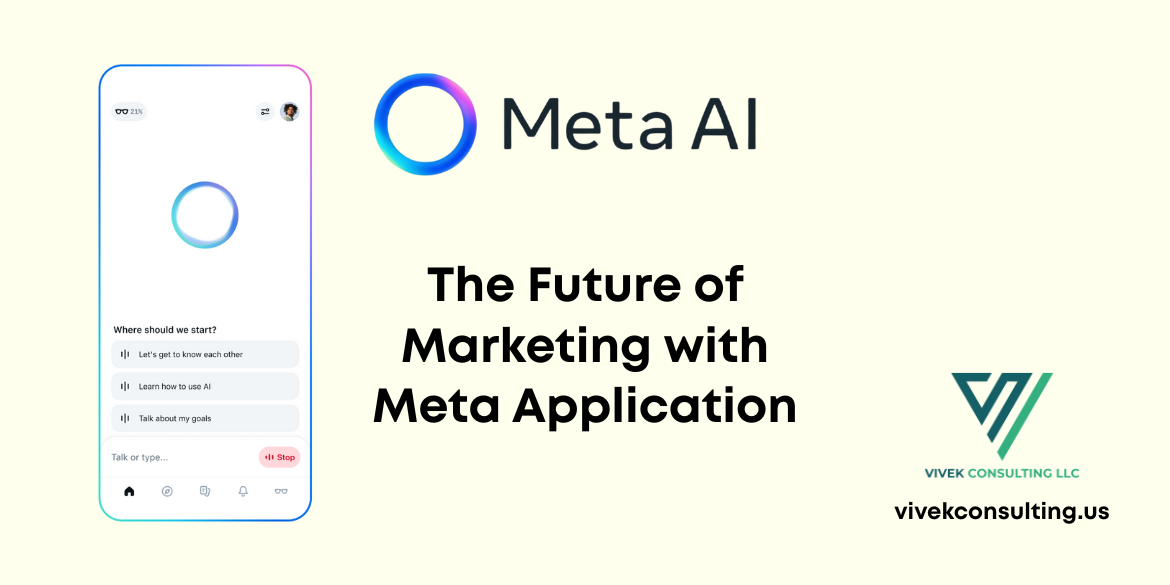 The Future of Marketing with Meta Application
The Future of Marketing with Meta Application
-
 Keyword Research for Website Wins in 2025 [Top 10 Free Keyword Research Tools]
Keyword Research for Website Wins in 2025 [Top 10 Free Keyword Research Tools]
-
.png) Learning the SEO Audit Checklist. Every website should rank higher, load faster, and convert better without wasting time.
Learning the SEO Audit Checklist. Every website should rank higher, load faster, and convert better without wasting time.
-
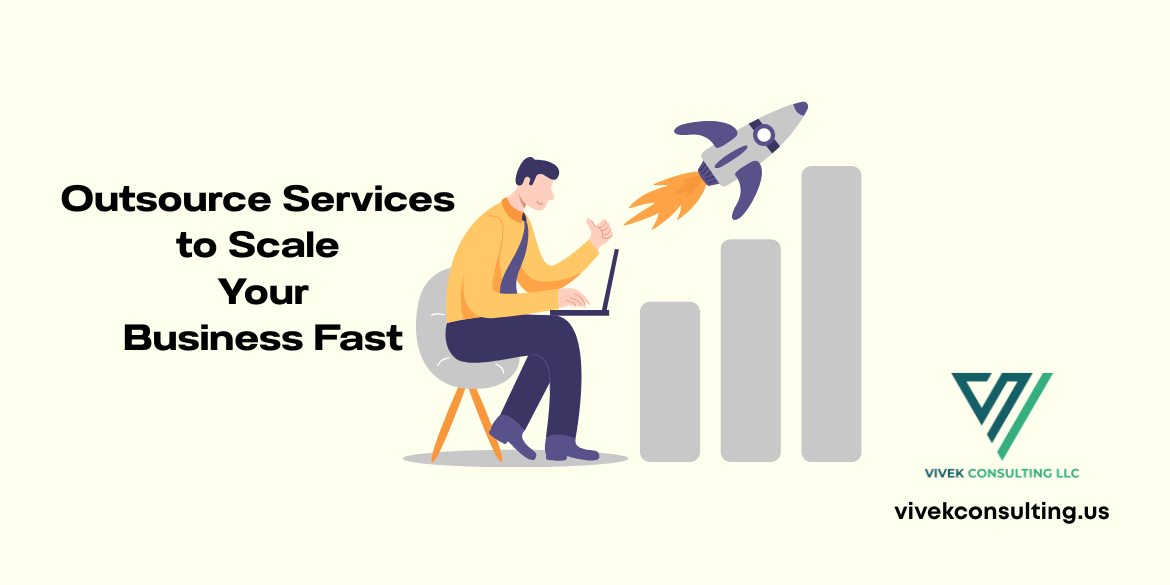 Ready for serious growth? Outsource services to scale your business fast and save time and money.
Ready for serious growth? Outsource services to scale your business fast and save time and money.
-
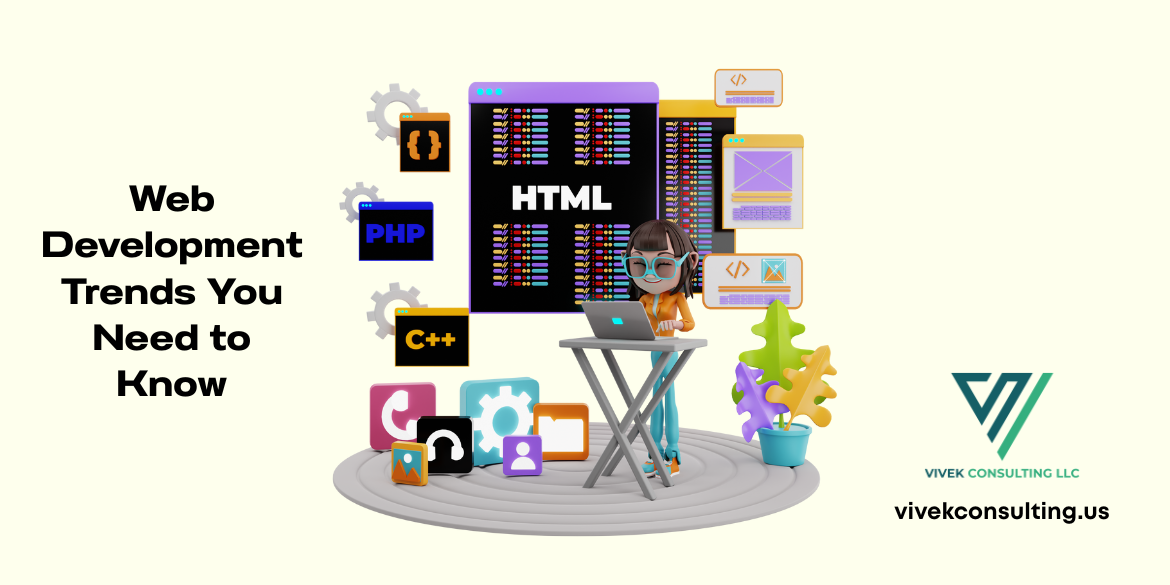 From AI to no-code, explore the Web Development Trends You Need to Know right now.
From AI to no-code, explore the Web Development Trends You Need to Know right now.
-
 Supercharge Business Growth with SEO
Supercharge Business Growth with SEO
-
 Digital Marketing Trends You Cannot Ignore in 2025
Digital Marketing Trends You Cannot Ignore in 2025
-
 Master Digital Marketing with AI in 2025
Master Digital Marketing with AI in 2025
-
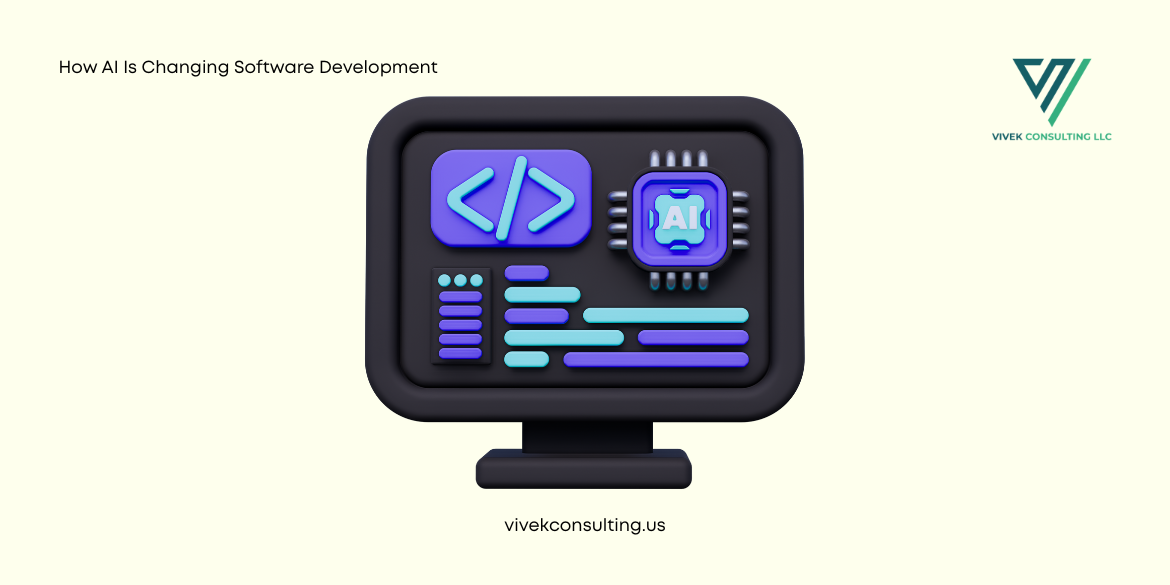 How AI Is Changing Software Development
How AI Is Changing Software Development
-
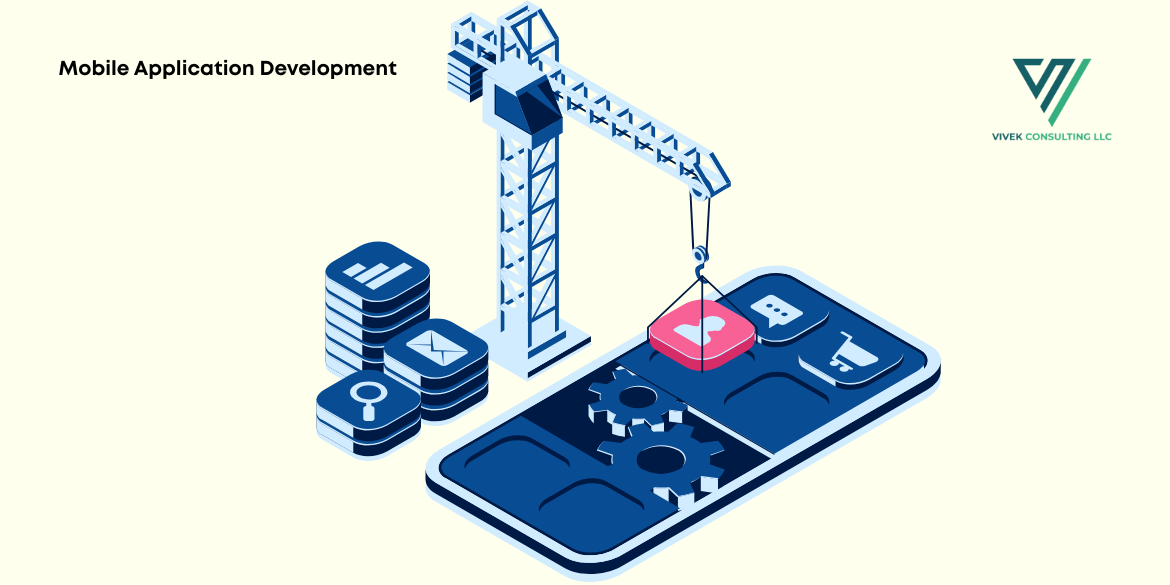 Mobile Application Development in 10 Easy Steps
Mobile Application Development in 10 Easy Steps
-
 Outsource Services to Boost Efficiency
Outsource Services to Boost Efficiency
-
 Ready to scale smart? Boost efficiency fast with managed services that work.
Ready to scale smart? Boost efficiency fast with managed services that work.
-
 Outsource Services: The Smart Move for Your Business
Outsource Services: The Smart Move for Your Business
-
 Technical SEO Tactics to Skyrocket Your Rankings
Technical SEO Tactics to Skyrocket Your Rankings
-
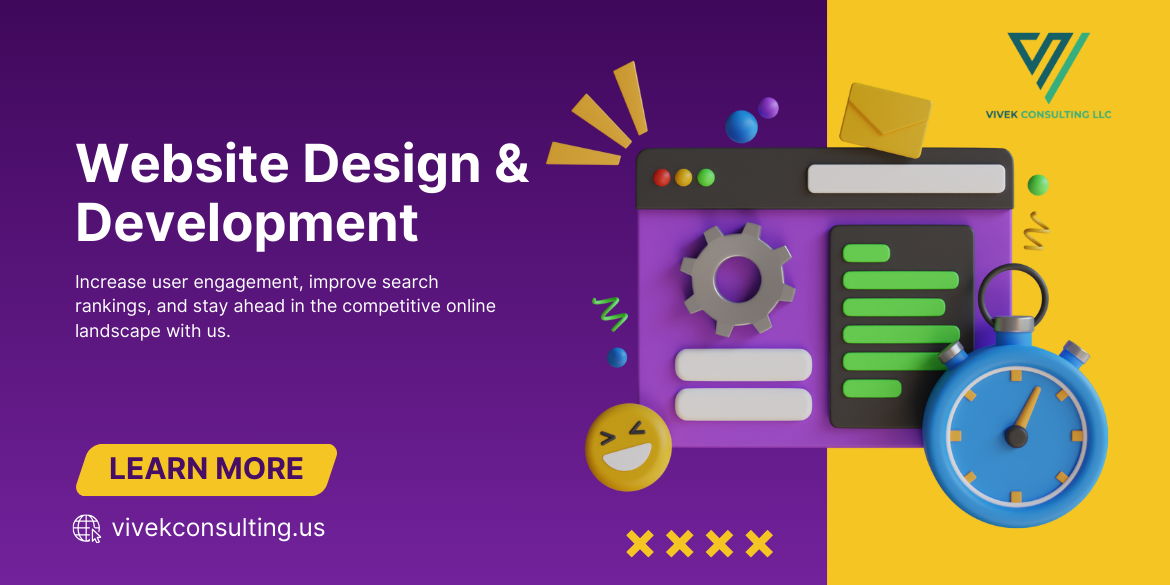 The digital world is evolving fast. Here is the web development trends you can’t ignore if you want to stay competitive.
The digital world is evolving fast. Here is the web development trends you can’t ignore if you want to stay competitive.
-
 Want more traffic? These off-page SEO tips will help you rank higher and grow like a pro! ????
Want more traffic? These off-page SEO tips will help you rank higher and grow like a pro! ????
-
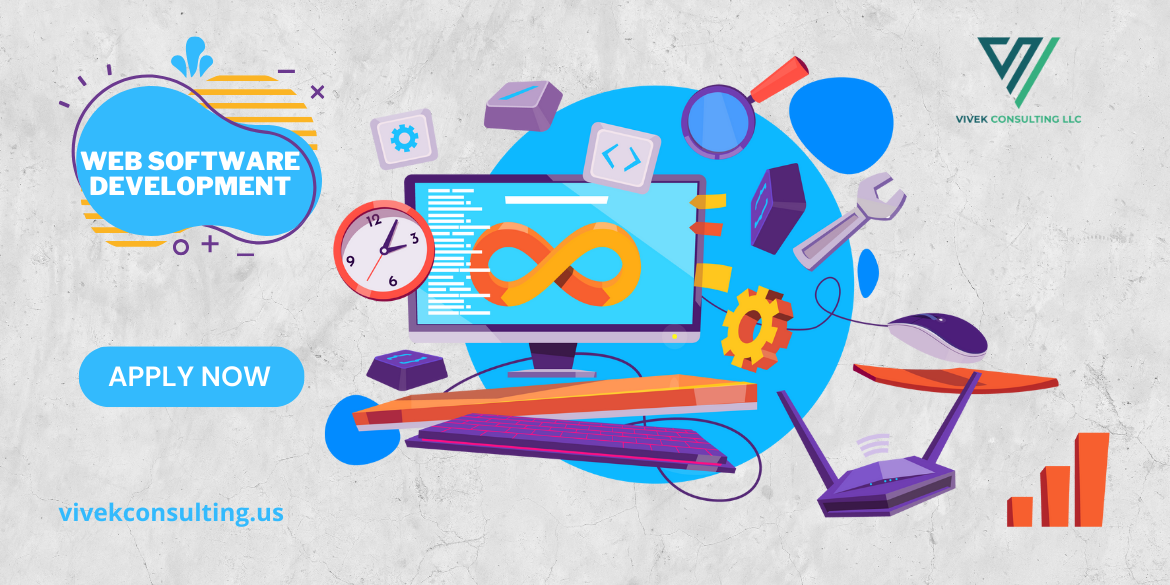 The Role of AI in Modern Software Development
The Role of AI in Modern Software Development
-
 Boost Organic Traffic Through On-Page SEO Strategies
Boost Organic Traffic Through On-Page SEO Strategies
-
 How SEO Can Skyrocket Your Business Growth
How SEO Can Skyrocket Your Business Growth
-
.png) Why Digital Marketing Benefits Business Success in Charlotte NC
Why Digital Marketing Benefits Business Success in Charlotte NC
-
 Explore the future of smartphone application development with Vivek Consulting and stay ahead of the game.
Explore the future of smartphone application development with Vivek Consulting and stay ahead of the game.
-
 Crush Your Competition with Digital Marketing Charlotte NC - Vivek consulting
Crush Your Competition with Digital Marketing Charlotte NC - Vivek consulting
-
 Why Vivek Consulting Tops Charlotte’s Software Developers
Why Vivek Consulting Tops Charlotte’s Software Developers
-
 The Innovation of Smart and Inclusive UX: How AI and 5G Are Transforming Mobile Application Development
The Innovation of Smart and Inclusive UX: How AI and 5G Are Transforming Mobile Application Development
-
 Website Development: The Value of Web Design in Establishing a Powerful Online Presence
Website Development: The Value of Web Design in Establishing a Powerful Online Presence
-
 Elevate Your Brand: Discover the Top Marketing Agency in Charlotte for 2025 - Vivek consulting
Elevate Your Brand: Discover the Top Marketing Agency in Charlotte for 2025 - Vivek consulting
